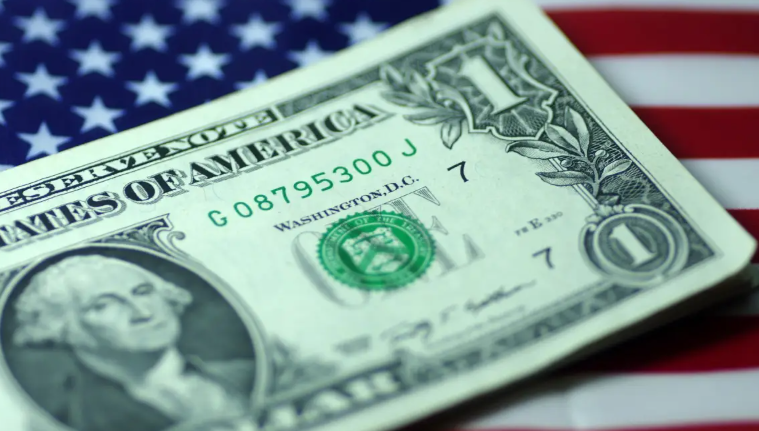The recent political shift in the United States has sparked concerns regarding the independence of the Federal Reserve, a vital institution that has borne the weight of economic responsibility for decades. New government leadership has made clear demands for immediate interest rate cuts from the Fed, claiming a superior understanding of how to manage interest rates. This intervention hints at a reality where political pressures may influence monetary policy, leaving many to ponder the consequences of such interference.
Understanding the implications requires a deeper look into what the independence of the Fed has historically meant for the U.S. economy and the global financial landscape. The Fed's independence has been a cornerstone of its stability and effectiveness. Since the collapse of the Bretton Woods System in 1971, the U.S. dollar has enjoyed a strong foothold as the world's reserve currency, due in part to the Fed's ability to control inflation and maintain predictability in monetary policy.
The concept of “seigniorage” often comes into play when discussing how the U.S. government benefits from its currency's global status. Seigniorage refers to the profit made by the government by issuing currency, especially the difference between the face value of coins and their manufacturing cost. In historical contexts, such as during the era of metallic currency, governments could directly exploit seigniorage by minting coins and spending them, gaining purchasing power without repayment obligations. This straightforward exploitation of currency has evolved in the modern context.
In today's complex economic framework, however, central banks like the Federal Reserve do not simply print money and hand it over to the government. Instead, they buy government bonds, effectively loaning money to the Treasury, with an expectation of repayment in the future. While there may not be direct seigniorage collection absent a debt default, the government often raises funds through borrowing, which can lead to higher inflation in the economy, indirectly benefiting debtors at the expense of creditors. Such practices emphasize the delicate balance the Fed must maintain in managing inflation and interest rates.
Current events underscore a growing trend of political engagement with the Fed. As the Biden administration encourages a reduction in interest rates to stimulate the economy amidst rising national debt, the risk of increased inflation looms large. The U.S. government is under pressure to manage its burgeoning interest expenses, which are projected to surpass $1 trillion in a year—a figure rivaling defense expenditures. With such compelling pressure to lower rates, the potential for compromising the Fed’s independence increases, sparking debates about how this might affect the credibility of the dollar in international markets.

The implications of a weakened dollar are far-reaching. The U.S. dollar serves not only as a domestic currency but also as the dominant means for international trade and reserve holdings around the world. If the Fed's decisions are increasingly swayed by political motives, the long-term expectations for inflation may escalate, subsequently undermining the dollar's purchasing power. What’s more, countries holding significant reserves in dollars may reconsider their positions, which could potentially destabilize global financial systems.
One of the most alarming consequences of a diminished dollar credibility would be its impact on international trade. As the leading currency in most transactions, any shakiness in the dollar's value could lead to increased transaction costs and volatility in global markets. Nations may hesitate to engage in trade with the U.S., fearing adverse currency fluctuations. Furthermore, if alternative currencies do not emerge to take the place of the dollar, the global economy may experience heightened uncertainty.
Additionally, the shrinking confidence in the dollar would also disrupt the dynamics of global capital flows. Essentially, savings and debt must coexist within an economy to promote vibrant financial circulation. Over the past few decades, the Western economies have largely driven global liquidity through their willingness to take on debt, contrasted with emerging markets that have favored savings, reflected in their substantial foreign exchange reserves. A threatened dollar reserve status would mean less leverage for the U.S. in international finance and could compel emerging economies to curtail their accumulation of dollar reserves, stifling overall growth.
Interestingly, the potential decline of the dollar may have a paradoxical effect on specific asset classes. As confidence wanes in the dollar, investors may seek refuge in alternative stores of value, such as precious metals and other scarce resources. This diversification is likely to drive up the demand and prices for those assets, fundamentally altering investment landscapes.
In summary, the potential for a more interventionist approach regarding the Federal Reserve poses significant challenges. Each action taken by the government carries implications that can echo through economic systems, with reverberations felt globally. While political leadership may aim to stimulate growth and alleviate pressure on national debt, the consequences—for the dollar, international trade and broader economic stability—could prove detrimental. The ongoing balance between maintaining strong dollar dominance and implementing necessary fiscal policies remains one of the most critical economic dialogues that will define the future of global finance.